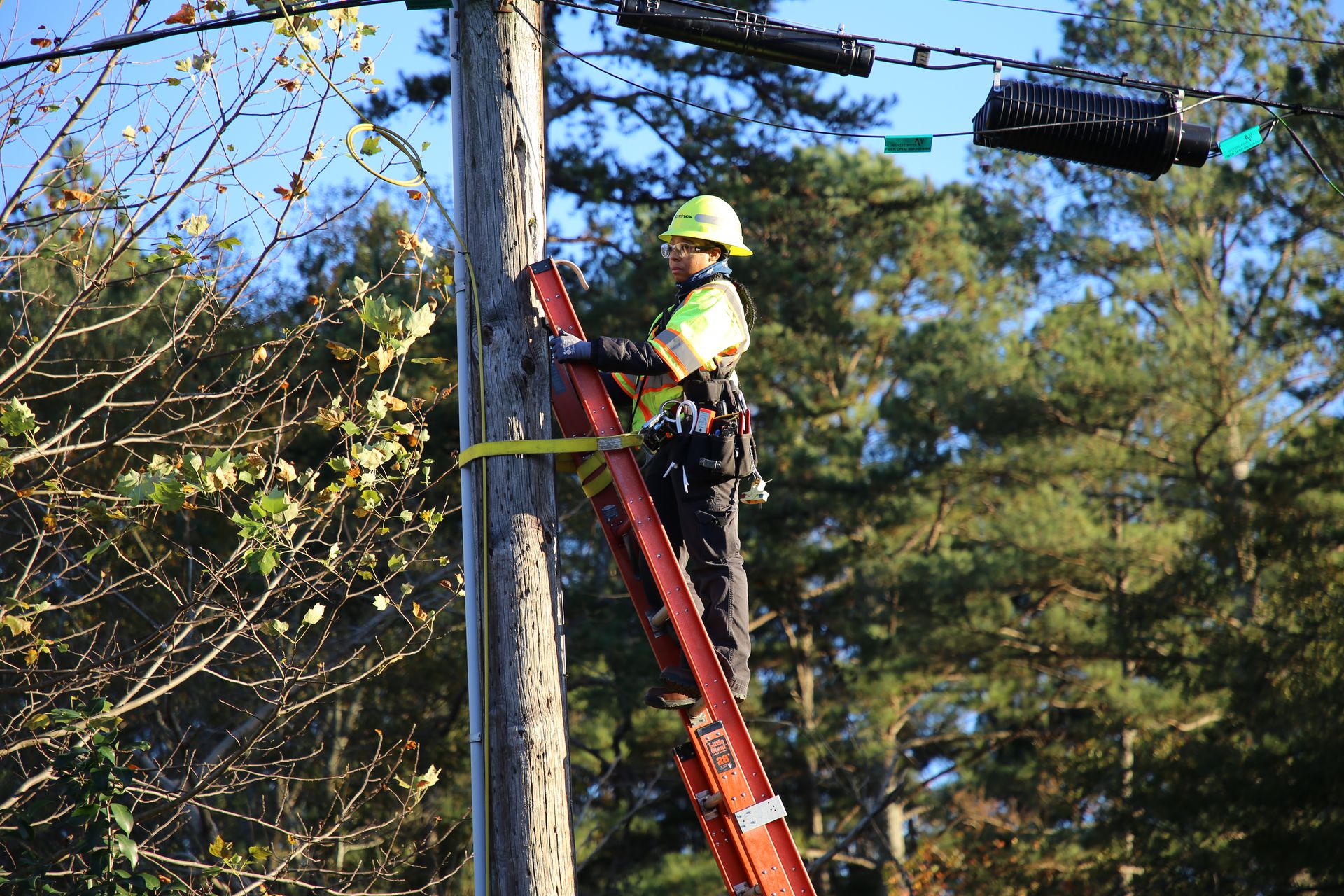Network Investment and Access
Just the Facts: Utility Pole Reform is Critical for Unserved Americans
April 4, 2023
Share Article:
Last year, Charter committed to bring high-speed internet service to approximately one million unserved rural homes and small businesses. We’re building quickly – in fact, we’re already offering service to thousands of those families – while simultaneously adding to the number of homes we’ve committed to reach in dozens of states.
Our experience connecting rural families has taught us several things, including: (1) communities are desperate for this connectivity, which they find transformational, and (2) permits and timely access to utility poles are the leading driver of delay in our ability to bring internet to their communities.
To provide internet to a home, internet service providers (ISPs) typically attach infrastructure to utility poles. To do this, ISPs need to pay pole owners to grant them a permit to attach to each pole and then the ISPs pay annual rent to the pole owner for using the pole. Many local officials and pole owners welcome ISPs wanting to rent space on their poles given the benefits high-speed internet will bring to their communities, such as El Paso officials and El Paso Electric did when we brought high-speed internet to rural parts of the county for the first time.
Yet some pole owners are using the ISPs' need to obtain a permit as a way to create delay. A pole owner in Kentucky, for instance, told us it would take 14 years before they could issue us the needed permits! Sometimes pole owners refuse to issue the permits unless the ISP first agrees to buy them new poles, even though the pole owner will still own the pole and charge the ISP annual rent and get an annual tax break from the government for owning that pole. Unfortunately, every pole owner has the power to be a bottleneck monopoly in its community, and when some cause unnecessary delay or charge ISPs inappropriate fees, there are no other pole owners in the area for ISPs to work with.
Unless federal and state leaders modernize the rules governing ISP permits and access to utility poles, those pole owners will delay – or even prevent – our country from closing the digital divide for years.
Government officials can modernize the rules of the road to ensure that modern high-speed broadband infrastructure reaches every corner of America quickly and affordably. Five key truths matter:
- #1: Pole reform is about preventing delay. Disputes over pole permits can last for months or even years, preventing broadband buildouts and stranding millions of American families and small businesses without broadband access. Pole reform is essential to ending delays.
- #2: Pole reform is about clarity. Federal regulations require pole owners to “share proportionally” the costs of replacing outdated poles. It’s implausible that pole owners could claim that their “proportional” share of the cost of a new pole should be zero and that instead all of these costs should be shifted to attachers. When a pole is replaced, the utility keeps ownership of the pole, receives a tax deduction for owning the pole, has the ability to charge every potential attacher for processing permit requests to attach to the pole, and then receives annual rent from every attacher on the pole – all while not having to buy another pole for 30 years or so, which is about how long a new pole will last. Clarifying what a “proportional” share is will result in fewer disputes and that means more families get connected faster.
- #3: Pole reform benefits consumers. Millions of American families and small businesses will benefit from pole reform as it will help speed ISP rural broadband buildout projects and get unserved communities access to fast internet more quickly.
- #4: Pole reform is a longstanding crisis. The federal government has been fielding complaints about pole owner delays and unreasonable costs for at least 20 years. Mobile and broadband providers of all sizes have spent decades trying to build out broadband infrastructure, only to run into the same roadblock. Pole reform is long overdue.
- #5: Pole reform is urgently needed. The attempt to further delay addressing pole reform runs contrary to the federal government’s goal of connecting 100% of Americans to broadband. With record taxpayer and private investments in broadband expansion being rolled out, this money must be well-spent. Pole reform is about achieving universal broadband connectivity.
Charter will continue to advocate for common-sense pole reforms. This debate must be grounded in fact, not fiction, for the sake of the more than 14 million Americans who need access to broadband as soon as possible. Federal and state policymakers have an opportunity to deliver for them, and reforming America’s broken pole policies is the best place to start.
